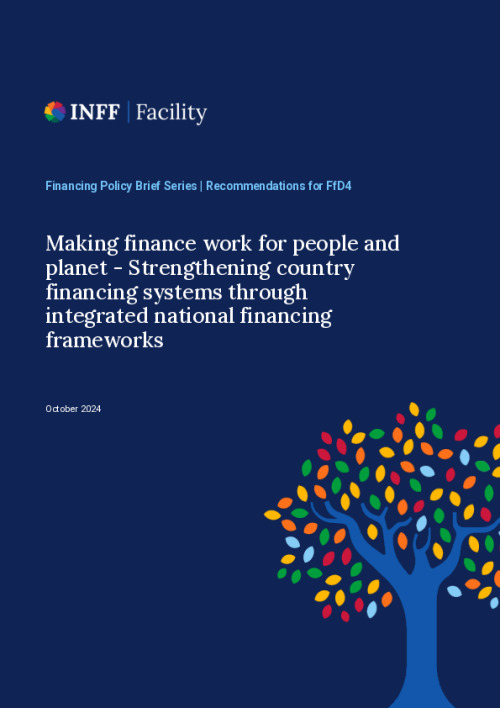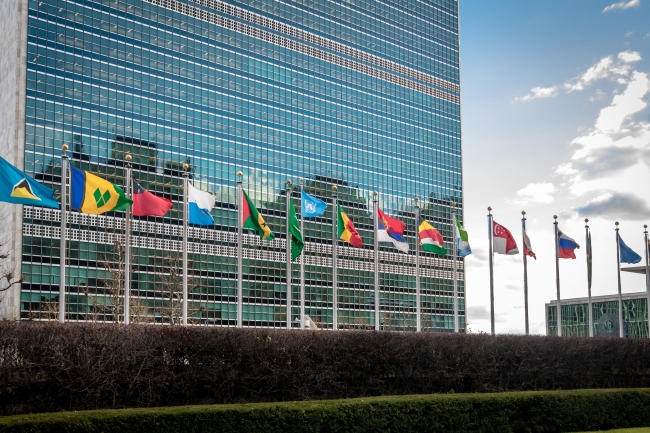Financing Policy Brief Series | Recommendations for FfD4

Financing Policy Brief Series | Recommendations for FfD4
06 October, 2024
This policy brief "Making finance work for people and planet - Strengthening country financing systems through integrated national financing frameworks" emphasizes country-led Integrated National Financing Frameworks (INFFs) as the central tool guiding public and private, domestic and international financing policy for national sustainable development priorities. The Fourth International Conference on Financing for Development (FfD4) outcome can encourage continued uptake of INFFs to scale up financing for social, economic and environmental priorities, enhance alignment across tax, spending, debt, private investment and the financial sector, and align country platforms and partnerships with international financial institutions (IFIs), development partners, the private sector and civil society, to build a financial ecosystem that works for sustainable development at the country level.
Key messages included:
- 86 countries are using the integrated national financing framework approach first introduced in the Addis Ababa Action Agenda: to date, 15 countries have operationalized a financing strategy and more than 50 countries are implementing reforms to public and private financing policy for the Sustainable Development Goals (SDGs) and Nationally Determined Contributions (NDCs) that have already mobilized and aligned tens of billions of dollars.
- Strengthening country leadership to build sustainable national financing ecosystems through INFFs: the 4th International Conference on Financing for Development (FfD4) should recognize the critical need to strengthen countries' financial planning and policy frameworks for achieving the SDGs, emphasizing the importance of country leadership in building sustainable national financing ecosystems through integrated national finance frameworks (INFFs).
- Making finance work for people and planet by moving towards financing policy integration: INFFs are proving to be a driver of significant investment in social, economic and environmental priorities by providing a comprehensive framework for countries to make ‘sustainable development-proof’ financing choices, with explicit consideration of risks and trade-offs across financing policy areas and sustainable development dimensions (economic, social, environmental).
- Leveraging INFFs for systemic engagement with the private sector and civil society: strengthening inclusive dialogues and collaboration with the private sector and civil society is essential to broaden the design and implementation of policy reforms, ensuring that their needs are systematically reflected in the policy frameworks.
- Aligning international support with national financing priorities: by enhancing coordination among country platforms for multilateral development banks (MDBs) and other partners, countries can use INFFs to align multilateral and bilateral donors, development banks, and the private sector to align their support with national priorities, helping scale up resources and technical assistance in support of national plans.
For all INFF publications, please go to https://inff.org/







